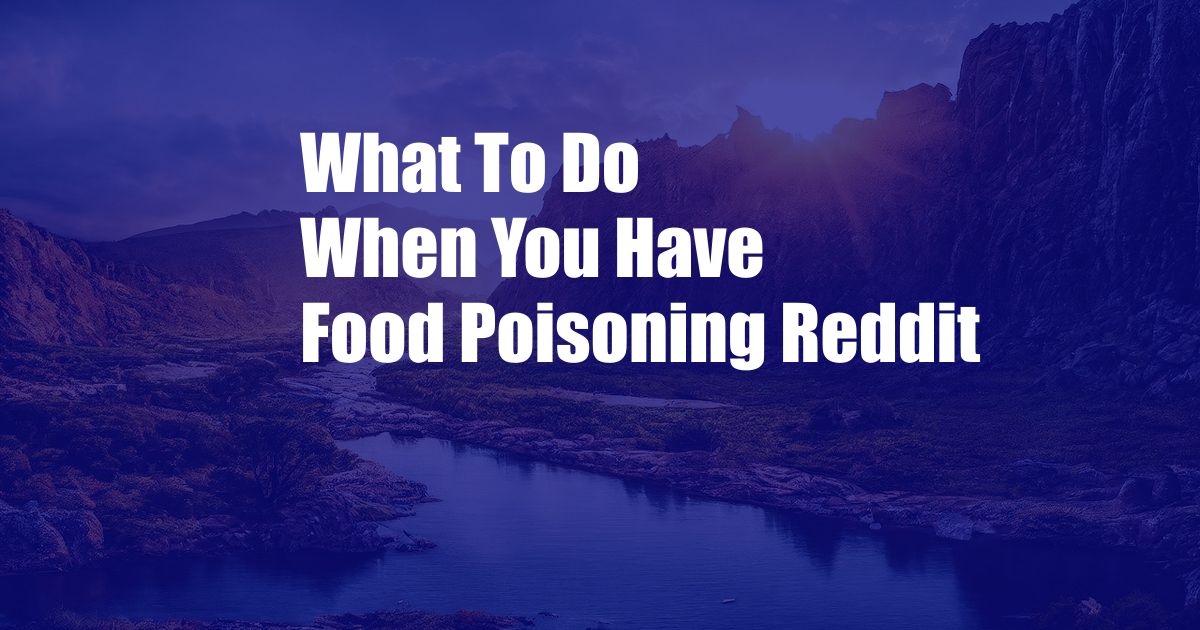
What to Do When You Have Food Poisoning: A Guide to Symptoms, Remedies, and Prevention
Food poisoning is a common ailment that can strike anyone at any time. It is caused by consuming contaminated food or drink, which contains harmful bacteria, viruses, or parasites. Symptoms of food poisoning can range from mild discomfort to severe illness and can include nausea, vomiting, diarrhea, abdominal pain, and fever. While most cases of food poisoning are not life-threatening, it is important to seek medical attention if you experience severe symptoms.
There are a few things you can do if you think you have food poisoning. First, try to identify the source of the contamination. If you have eaten at a restaurant, contact the establishment and let them know. You should also report the incident to your local health department.
Remedies for Food Poisoning
Once you have identified the source of the contamination, you can start treating the symptoms of food poisoning. There are a few things you can do to help relieve your symptoms, including:
Stay hydrated. Drink plenty of fluids, such as water, broth, or electrolyte drinks, to help replenish the fluids you have lost through vomiting and diarrhea.
Eat bland foods. Once you are able to eat, stick to bland foods, such as rice, crackers, or toast. Avoid spicy or greasy foods, as these can irritate your stomach further.
Get plenty of rest. Rest is important for your body to heal. Make sure to get plenty of sleep and avoid strenuous activity.
Take over-the-counter medications. There are a number of over-the-counter medications that can help relieve the symptoms of food poisoning, such as anti-nausea medications, anti-diarrheal medications, and pain relievers.
Preventing Food Poisoning
There are a few things you can do to help prevent food poisoning, including:
Wash your hands thoroughly before handling food.
Cook food to the proper temperature.
Store food properly.
Avoid cross-contamination.
Be careful about eating raw food.
By following these tips, you can help reduce your risk of food poisoning.
Frequently Asked Questions About Food Poisoning
Q: What are the symptoms of food poisoning?
A: Symptoms of food poisoning can range from mild discomfort to severe illness and can include nausea, vomiting, diarrhea, abdominal pain, and fever.
Q: What should I do if I think I have food poisoning?
A: If you think you have food poisoning, you should try to identify the source of the contamination, treat the symptoms, and contact your doctor if your symptoms are severe.
Q: How can I prevent food poisoning?
A: There are a few things you can do to help prevent food poisoning, including washing your hands thoroughly before handling food, cooking food to the proper temperature, storing food properly, avoiding cross-contamination, and being careful about eating raw food.
Conclusion
Food poisoning is a common ailment, but it can be prevented and treated if you know what to do. By following the tips in this article, you can help reduce your risk of food poisoning and enjoy a healthy and happy life.
Have you ever had food poisoning? What were your symptoms? How did you treat them?